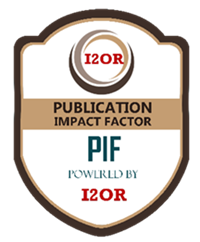Using Bayesian Approach of Mixture Poisson Regressions Model to Estimate the Propagation Rate of a Viral Infection Potato Plants
DOI:
https://doi.org/10.53555/nnms.v4i4.541Keywords:
Mixture model, Poisson regression, Frequentist statistics, Bayesian approach.Abstract
The mixture model is widely used in many clustering problems. Hence, the estimation approaches for the mixture model are also developed. The most well-known method is called EM algorithm, which is a method based on the frequentist statistics. However, the frequentist statistics approach is based on the fixed parameter estimation which is less accurate comparing with the alternative approach – Bayesian approach. The Bayesian approach estimates the parameter based on the data set, thus, the model via Bayesian approach is theoretically better fits with the corresponding to the data set. This paper will introduce the Mixture Poisson Regression Model with Bayesian approach. In addition, this paper compares this model with the mixture of linear regression which has been used in this data set.
References
Assmann, A (1994). Concept of wisdom in historical and cross-cultural perspective.
Adler, M, J. (1952). The Great Ideas: A syntopicon of great books of the western world. (Vol.2)). Chicago: William Benton Publisher.
Baltes, P. B. (1987). Theoretical propositions of life-span developmental psychology: On the dynamics between growth and decline. Developmental psychology. Cambridge University Press.
Baltes. P., & Smith, J (1990). Toward a psychology of wisdom and its ontogenesis. In R.Sternberg Ed.). Wisdom: Its nature, origins and development.
Baltes, P.B., Staudinger,U.M., Maercker.A.,&Smith,J. (1995). People nominatedas wise: A comparative study of wisdom-related knowledge. Psychology and Aging, 10, 155-166.
Bubeck, E.D, (1995). Care, gender and justice. Oxford, UK: Claredon Press.
Berrnnet, 2003, The Book of Virtues, Cambridge University Press.
Bond MH. Localizing the imperial outreach. American Behavioral Scientist. 2000;44:63–72.
Brugman, G. (2000). Wisdom: Source of narrative coherence and eudaimonia. Delft, The Nederlands: Uitgeverij Eberon.
Birren, J. E., & Fisher, L,. M. (1990). Conceptualizing wisdom: the primacy of affect-cognition relations. . In R. Sternberg (Ed.). Wisdom: Its nature, origins and development.
Crenshaw, J. (1976). Studies in ancient Israeli wisdom. New York: Klave Publishing House. Cheung FM, Leung K, Zhang J, Sun H, Gan Y, Song WZ, et al. Indigenous Chinese personality constructs: Is the five factor model complete?. Journal of Cross-Cultural Psychology. 2001;32:407–433.
Dorner,J. & Staudinger, U.M. (2003). Personality growth from inside: The Mature self-concept. Unpublished manuscript. International University Bremen, Bremen, Germany.
Ericson, E.H. (1959). Identity and the life cycle. New York: International University Press.
Hashimoto, A. (1996). The gift of generations: Japanese and American perspectives on aging and the social contract. Cambridge, UK: Cambridge University Press.
James, W. (1902). Varieties of religious experience. New York: Longmans
Green.Kramer, D. A (1990). Conceptualizing wisdom: the primacy of affect-cognition relations. In R. Sternberg (Ed.). Wisdom: Its nature, origins and development.
Konstabel K, Realo A, Kallasmaa T. Exploring the sources of variations in the structure of personality traits across cultures. In: McCrae RR, Allik J, editors. The Five-Factor Model across cultures. New York: Kluwer Academic/Plenum Publishers; 2002. pp. 29–52.
Mastor KA, Jin P, Cooper M. Malay culture and personality. American Behavioral Scientist. 2000;44:95–111.
Michael W. Passer & Ronald E. Smith (2004). Psychology: The Science of Mind And Behavior. Second Edition. The McGraw-Hill
Pasupathi, M., & Staudinger, U.M. (2001). Do Advanced moral reasoners also show wisdom? Linking moral reasoning and wisdom-related knowledge and judgment. International Journal Behavior Development, 25(5).
Robinson, D.N. (1990) Wisdom through the ages, New York: Cambridge University Press.
Sinnot, D., J (1991). The Development of logic in adulthood: Postformal thoughts and its applications. New York: Preager.
Sternberg, R., J. (1998). A balance theory of wisdom. A Review of General Psychology, 2, 347-365. New York: Cambridge University Press.
Sendy, S. Widjaya. (2010). Business Culture in Indonesia. Jakarta: PT Endoseni Murni.
Takayama, M. (2002). The concepts of wisdom and wise people in Japan. Unpublished doctoral dissertation, Tokyo university, Japan.
Yang KS. Chinese personality and its change. In: Bond MH, editor. The psychology of the Chinese people. Oxford, UK: Oxford University Press; 1986. pp. 106–170.
Published
Issue
Section
License

This work is licensed under a Creative Commons Attribution-NonCommercial-NoDerivatives 4.0 International License.
You are free to:
- Share — copy and redistribute the material in any medium or format for any purpose, even commercially.
- Adapt — remix, transform, and build upon the material for any purpose, even commercially.
- The licensor cannot revoke these freedoms as long as you follow the license terms.
Under the following terms:
- Attribution — You must give appropriate credit , provide a link to the license, and indicate if changes were made . You may do so in any reasonable manner, but not in any way that suggests the licensor endorses you or your use.
- No additional restrictions — You may not apply legal terms or technological measures that legally restrict others from doing anything the license permits.
Notices:
You do not have to comply with the license for elements of the material in the public domain or where your use is permitted by an applicable exception or limitation .
No warranties are given. The license may not give you all of the permissions necessary for your intended use. For example, other rights such as publicity, privacy, or moral rights may limit how you use the material.




